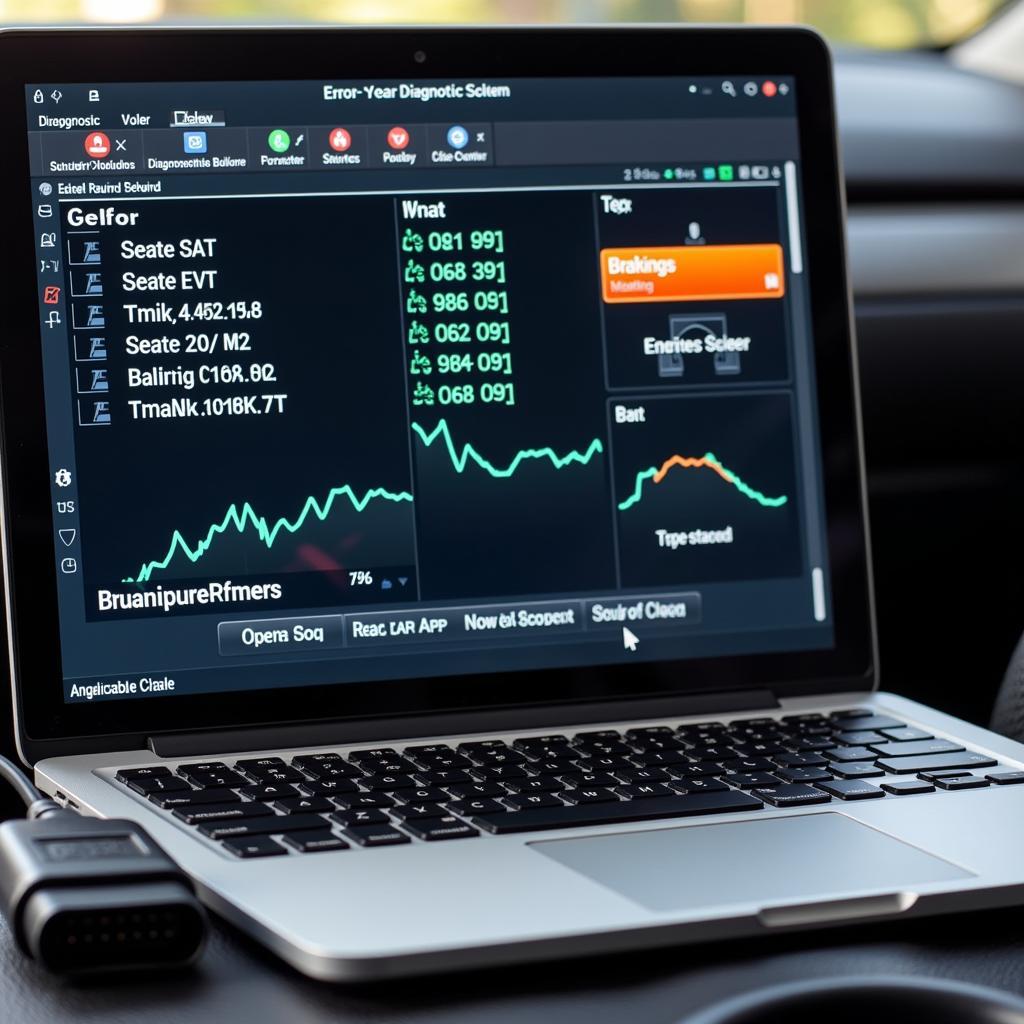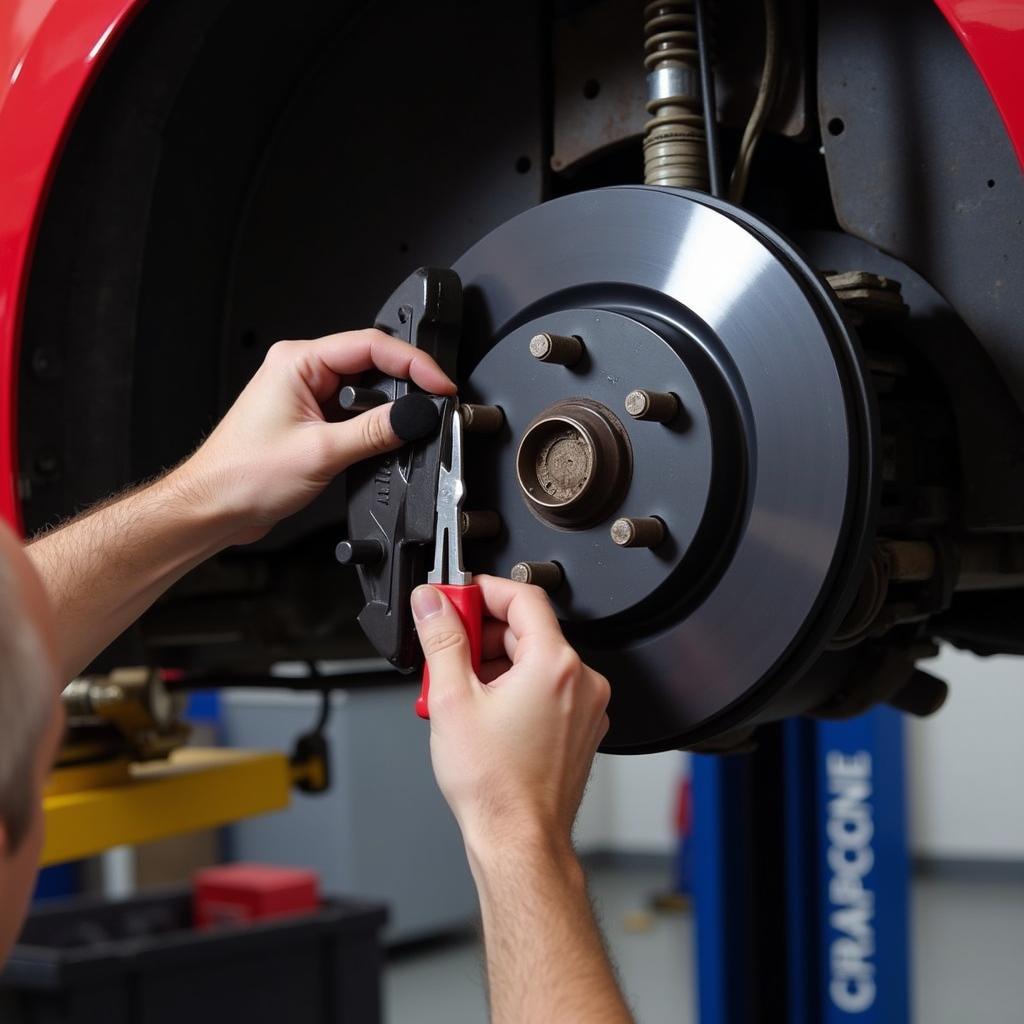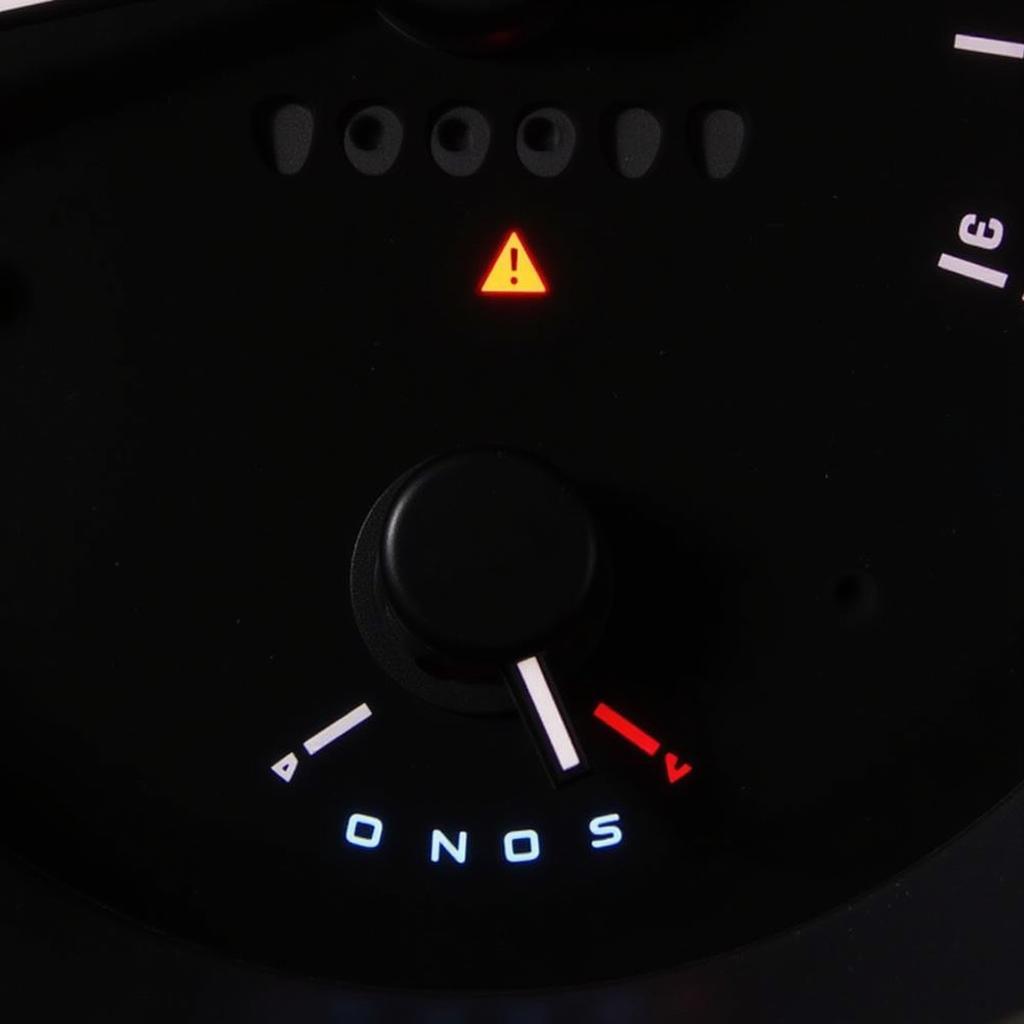The brake warning light on your Volkswagen Jetta can be a jarring sight. Understanding why your brake warning light volkswagen jetta illuminates is crucial for your safety and the longevity of your vehicle. This comprehensive guide will explore the common causes, diagnostic procedures, and solutions, including remote software programming and installation, to address this issue.
If your brake warning light is on, don’t panic. It doesn’t always mean your brakes are about to fail. However, it does signal a potential problem that needs immediate attention. volkswagen jetta brake pad warning light can often be a first indicator. Ignoring the warning can lead to more severe and costly repairs down the line.
Understanding Your Jetta’s Brake Warning System
The brake warning light is part of a complex system designed to alert you to potential issues within your Jetta’s braking system. This system includes various sensors, the brake fluid reservoir, and the braking components themselves.
Common Causes of a Brake Warning Light
There are several reasons why your Volkswagen Jetta’s brake warning light might be on. Some common culprits include:
- Low Brake Fluid: This is often the most common cause. A leak in the brake lines, worn brake pads, or a failing master cylinder can cause the brake fluid level to drop.
- Worn Brake Pads: Your Jetta is equipped with brake pad wear sensors that trigger the warning light when the pads reach a certain thickness.
- Faulty Brake Sensor: Sometimes, the brake pad wear sensor itself can malfunction, triggering the light even when the brake pads are fine.
- ABS Issues: If the Anti-lock Braking System (ABS) detects a problem, it can also illuminate the brake warning light. This usually requires specialized diagnostic equipment.
- Parking Brake Engaged: It may seem obvious, but sometimes the parking brake is simply engaged. Make sure to check this first.
Diagnosing the Problem: From DIY to Professional Help
Start by checking your parking brake. If it’s disengaged and the light persists, check your brake fluid level. If it’s low, top it off with the correct type of brake fluid specified in your owner’s manual. If the fluid level drops quickly again, you likely have a leak. 2010 volkswagon jetta brake warning harness has known issues, for example.
Using Remote Diagnostic Tools
For more complex issues, remote diagnostic tools and software are increasingly valuable. These tools can interface with your Jetta’s onboard computer to pinpoint the exact cause of the warning light. This can save time and money by avoiding unnecessary repairs. jetta brake service now warning can sometimes be diagnosed remotely.
 Using remote diagnostic software to troubleshoot a Volkswagen Jetta's brake warning light
Using remote diagnostic software to troubleshoot a Volkswagen Jetta's brake warning light
When to Seek Professional Help
If you’re not comfortable working on your car’s braking system or if the problem persists after basic troubleshooting, it’s essential to consult a qualified mechanic. They have the expertise and equipment to diagnose and repair more complex issues, including ABS problems and brake line leaks.
“Brake systems are critical safety components,” says John Smith, ASE Certified Master Technician. “Don’t hesitate to seek professional help if you’re unsure about anything.”
## Volkswagen Jetta Brake Warning Light: Solutions and Repairs
Once the cause of the brake warning light is identified, the appropriate repairs can be carried out. This may involve replacing worn brake pads, repairing a leak in the brake lines, or even replacing the master cylinder.
Remote Programming and Installation
In some cases, the solution may involve reprogramming or updating the software that controls the braking system. This can often be done remotely using specialized software and equipment. This can be a convenient and cost-effective way to address certain types of brake warning light issues. volkswagen jetta brake warning light has seen a rise in these remote solutions.
“Remote programming offers a streamlined approach to addressing specific software-related brake issues,” says Jane Doe, Automotive Software Engineer. “It minimizes downtime and provides a quick and efficient solution.”
 A mechanic replacing brake pads on a Volkswagen Jetta
A mechanic replacing brake pads on a Volkswagen Jetta
Conclusion: Addressing Your Jetta’s Brake Warning Light
A brake warning light volkswagen jetta shouldn’t be ignored. By understanding the potential causes, utilizing appropriate diagnostic methods, and seeking professional help when needed, you can ensure your Jetta’s braking system operates safely and efficiently. Regular brake maintenance and timely repairs are essential for your safety and the longevity of your vehicle. Don’t delay; address the issue promptly. 2006 vw passat brake warning light offers similar insights for related Volkswagen models.
FAQ (Frequently Asked Questions)
- What should I do if my brake warning light comes on while driving? Pull over safely as soon as possible and check your parking brake. If it’s disengaged, check your brake fluid level. If it’s low, add fluid. If the problem persists, call a mechanic.
- Can I drive my Jetta with the brake warning light on? It’s not recommended. Driving with a brake warning light could be dangerous. Have the issue diagnosed and repaired as soon as possible.
- How often should I check my brake fluid level? Check your brake fluid level at least once a month, and more frequently if you notice any changes in your brake pedal feel.
- How much does it cost to fix a brake warning light issue? The cost depends on the underlying cause. It could range from a simple top-off of brake fluid to a more expensive repair like replacing the master cylinder.
- How can I prevent brake warning light issues in the future? Regular brake maintenance, including brake pad replacements and brake fluid flushes, is the best way to prevent future brake problems.
- What is the difference between the brake warning light and the ABS light? The brake warning light indicates a general issue with the braking system, while the ABS light specifically indicates a problem with the Anti-lock Braking System.
- Can remote diagnostics help with my brake warning light issue? Yes, remote diagnostics can often pinpoint the exact cause of the problem, saving time and money on repairs.

